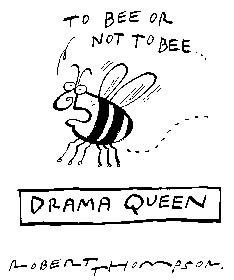A story in Edna O’Brien’s new collection — her 24th book since 1960 — shows us a mother and daughter who are thrilled to be taking tea with the Coughlans, posh new arrivals in their rural west of Ireland parish.
A story in Edna O’Brien’s new collection — her 24th book since 1960 — shows us a mother and daughter who are thrilled to be taking tea with the Coughlans, posh new arrivals in their rural west of Ireland parish. But the afternoon is a washout: their haughty hostess has a neck rash and is too distracted for chit-chat. Trudging home, the girl suddenly craves tinned peaches. No, says her mother, ‘it would be an extravagance’; perhaps another day. Regretting their lives — ‘so drab, so uneventful’ — the girl prays, wonderfully, for drastic things to occur — ‘for the bullocks to rise up and mutiny, then gore one another, for my father to die in his sleep, for our school to catch fire, and for Mr Coughlan to take a pistol and shoot his wife, before shooting himself’.
To which the rest of the book says: careful what you wish for. One nightmarish piece sees a woman wake to find her home town invaded by a raping, pillaging militia. Another violent tale concerns a painter’s short-lived friendship with a convict whom she teaches art in prison. Because O’Brien doesn’t immediately make it known that the prisoner is an IRA man with blood on his hands, the time we spend in his company can’t help but make him a sympathetic figure when — freed from jail — he becomes a target for reprisals.
The creepy ‘Sinners’ pulls off a similar trick by cleaving to the tortured conscience of its central character, a landlady who can’t sleep for what sounds like the gasps of her three most recent guests cavorting together in bed. She had taken them for a married couple with their daughter (they booked two rooms). We share her sense of scandal, even as we suspect she is a busybody who is imagining things: she’s already nosed round their stuff, stopping short of opening the suitcases ‘as a point of honour’.
My favourite piece tells the story of Curly, a young man with a learning disability who wins big on the horses before getting mixed up in a money-laundering scam. To make matters worse, a local quarrying tycoon is on his tail in case he blabs about a cock-up that saw gallons of diesel contaminate a reservoir. It could be mawkish, but isn’t, and as Curly cracks under pressure, a thoughtful priest — nicely contrarian of O’Brien — suggests that he’s a victim of the Celtic Tiger, which generally gets a good, poignant kicking in these pages, with more than one character bemoaning its bulldozers and champagne-glugging arrivistes.
Even if a couple of stories take their navel-gazing narrators far too seriously to be much fun — especially one about a Manhattanite mulling over her flirtation with a rock-star architect (she’s the sort of person who gushes about ‘the wonder of Africa’) — it’s hard to see the best tales here as anything other than perfect: dark but not downbeat, moral without being simplistic, and inconspicuously lyrical.






Comments